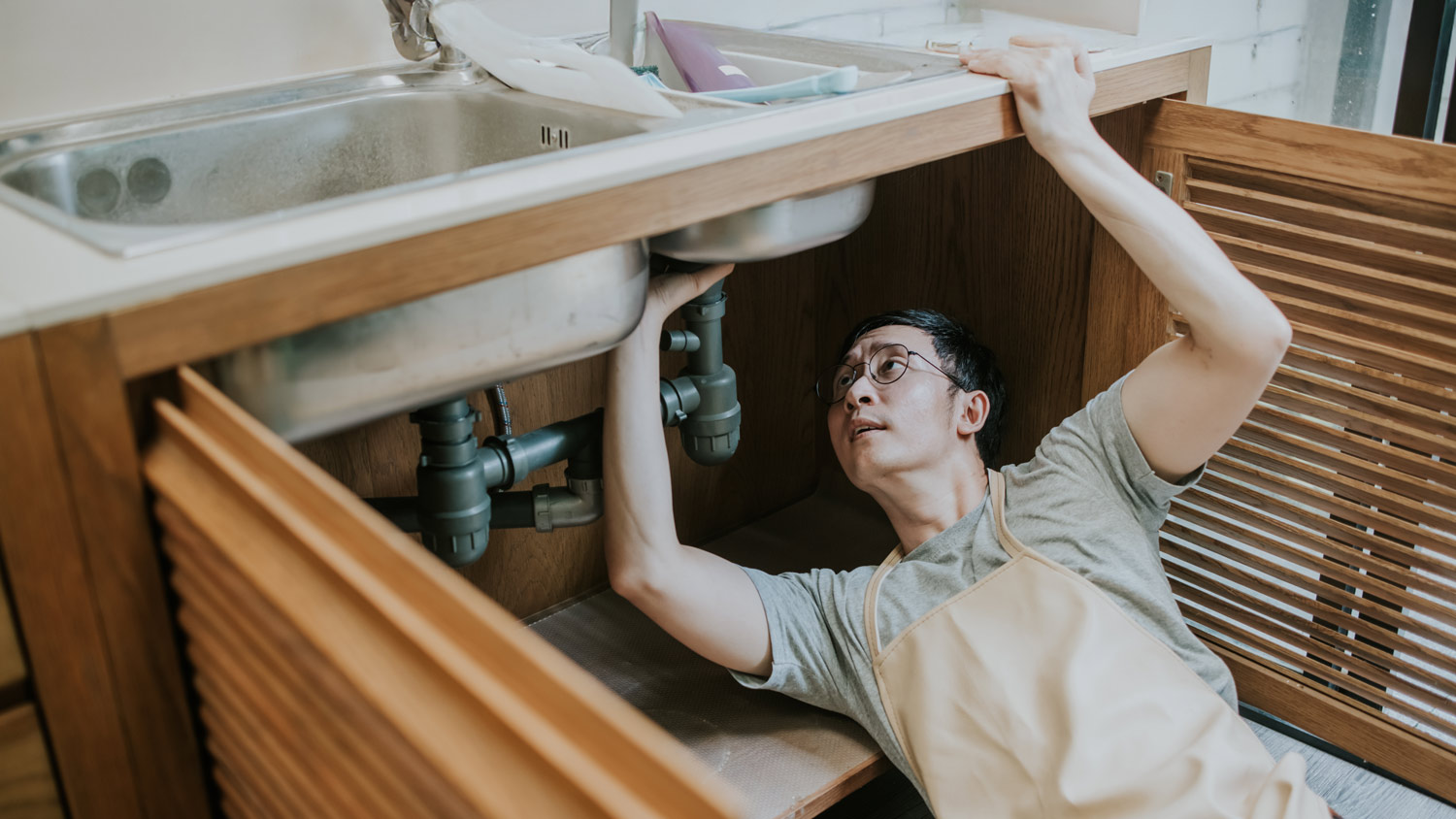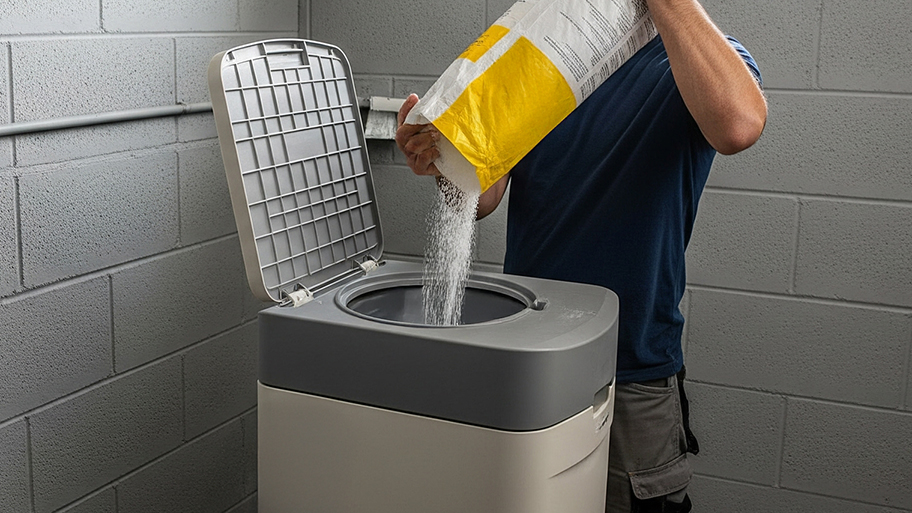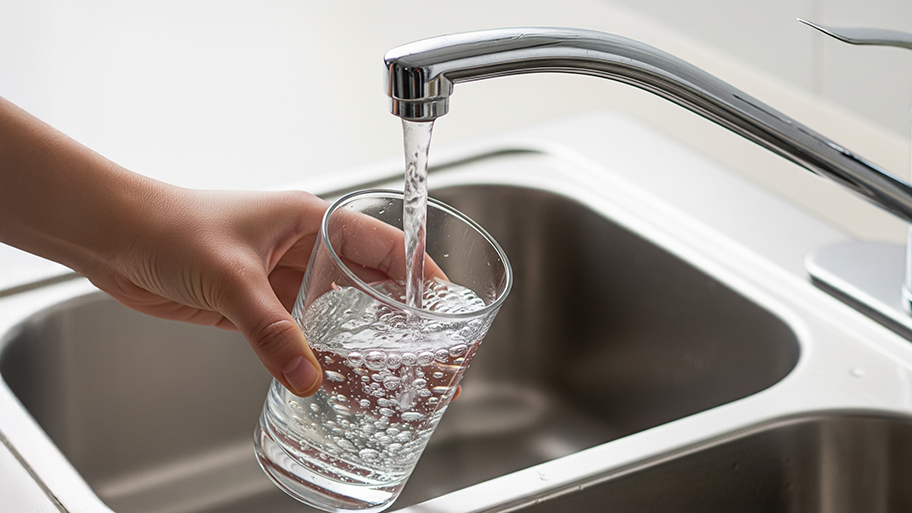
Your cost to install an under-sink water filter will depend on the type and size of system you choose and whether you need professional installation.
No, it’s not ice


The hardness of water refers to its mineral content.
Hard water is perfectly healthy to consume, but it can dry out your skin, hair, and clothes.
A water softener can stop hard water limescale buildup in pipes and appliances, increasing their life spans.
If you’ve been seeing spots on clean glassware and white stains on faucet heads, you could be living in one of the more than 80% of households in the U.S. that has hard water. While hard water is fine to consume, it can cause other problems, such as dry skin and hair. Aside from it being a good excuse for a bad hair day, let’s dive into what hard water is and what it means for your home.

It might seem odd to describe any liquid as hard, but hardness or softness refers to the amounts of minerals and even metals found in the water, including calcium, magnesium, iron, and lead. The higher the content, the “harder” the water. Soft water contains only trace amounts of these minerals.
Below is a water hardness scale that depicts the range of mineral content levels that categorize water as soft or hard. If you decide that you want to treat your water, using a water hardness scale can help you determine what size water softener to buy.
| Hardness Level | Grains per Gallon (GPG) | Milligrams per Liter (mg/L) |
|---|---|---|
| Soft | 0.9 or less | 0 – 17 |
| Slightly hard | 1.0 – 3.5 | 17.1 – 60 |
| Moderately hard | 3.5 – 7.0 | 61 – 120 |
| Hard | 7.0 – 10.5 | 121 – 180 |
| Very hard | 10.5 or more | 180 or more |

To determine the precise level of water hardness or softness in your home, you can purchase a DIY test kit or call a local water softener installation company to test your water.
However, if you want to test your own water in a less-than-official (but much quicker) way to see if it’s hard, follow these steps:
Fill a sealable cup or bottle about halfway (this doesn’t need to be precise) with cold tap water.
Add a few drops of dish soap.
Seal the container and shake it vigorously.
Wait a few seconds for everything to settle.
Review the results.
If your water is soft, you’ll see lots of bubbles floating on top of clear water, but if it’s hard, you’ll only see a few bubbles on top of cloudy water.

As hard water evaporates from surfaces, it leaves behind a chalky buildup known as limescale. Aside from being unsightly, hard water stains can limit the flow of water through pipes, causing appliances to work harder and potentially have shorter life spans. Here are some other telltale signs that you have hard water in your tap:
Spots on clean dishes
Limescale buildup on faucets and showerheads
Ongoing plumbing or appliance issues due to hard water buildup
Dry skin and hair
Dull, stained, or stiff clothes, even after a fresh wash
Again, while hard water is safe to drink, other drawbacks exist. If you’re concerned about dry skin or aging appliances, call a local water softener installation company to ask about water softener systems and filters.
From average costs to expert advice, get all the answers you need to get your job done.

Your cost to install an under-sink water filter will depend on the type and size of system you choose and whether you need professional installation.

How much a water softener costs depends on your home’s size, and the system’s type and capacity. Our expert guide explores all the price factors.

On average, a reverse osmosis water filter costs around $2,200, but there are a few variables that impact the total price. Learn about them in this guide.

Clean drinking water is a must-have for every household. If you don’t have access to potable water, explore these five ways to make water safe for drinking.

Considering reverse osmosis versus carbon water filtration for your home? Carbon filters can remove some impurities, but RO removes a lot more.

How does a reverse osmosis water filter work? Water passes through a semipermeable membrane to remove common contaminants, leaving clean, fresh water.